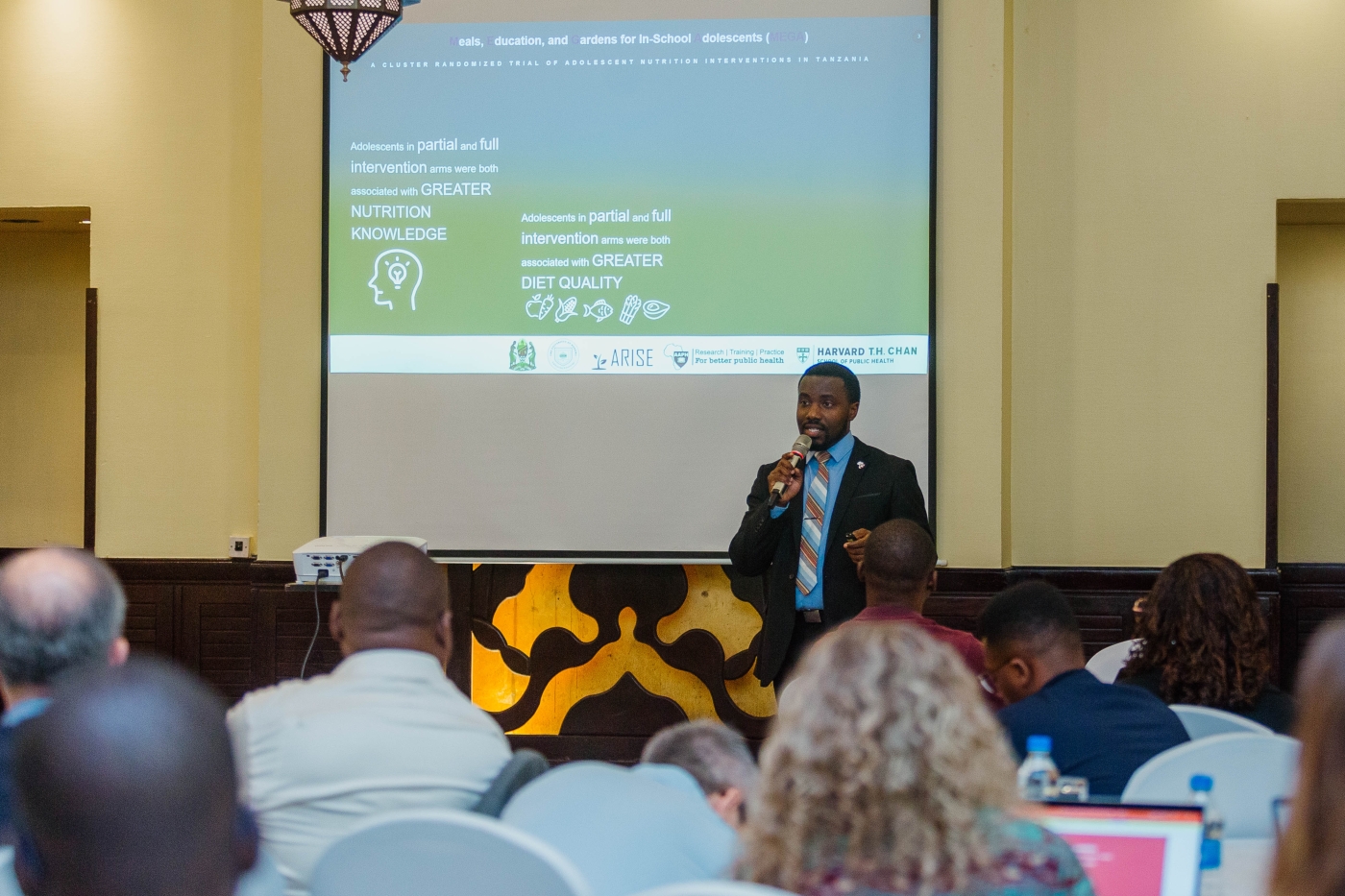
The Africa Research, Implementation Science, and Education (ARISE) Network was established in 2014 in response to a clear and compelling need for greater, more sustainable public health capacity in Africa. A collaborative effort between leading African institutions, ARISE serves as a platform for robust research and cutting-edge education in the region. The Network is comprised of 21 member institutions from nine sub-Saharan African (SSA) countries. Together, this group of distinguished colleagues is working toward advancing implementation science in priority research areas and developing the next generation of public health leaders in Africa.
Recognizing shared needs and goals among African partners, the Africa Academy for Public Health (AAPH), a center of excellence in health systems and implementation science in the African region, convenes the ARISE Network in partnership with Harvard T.H. Chan School of Public Health. ARISE partners share a common commitment to improving population health through enhanced capacity and more effective programs. Longstanding training initiatives between leading academic institutions in the region provide a strong foundation for advancing public health impact.
The Network has vast experience and particular expertise in the areas of adolescent health as well as maternal, neonatal, and child health (MNCH)—priority areas for sub-Saharan Africa as a whole. Given the importance of adolescent health for sustaining improvements made in childhood and for advancing maternal health, the Network is also focusing on adolescent health as a priority issue. ARISE implementation science research aims to target multiple domains of adolescent health and MNCH.
ARISE is expanding knowledge on the state of global adolescent health through a longitudinal adolescent health surveillance study implemented in seven sub-Saharan African countries. Additionally, the Network leads community-based and school-based studies which produce results that guide interventions to address health risks among adolescents, an age group that traditionally has been overlooked in global health research. The network is advancing work to establish a global alliance to prevent and reduce nutrition-related noncommunicable diseases among adolescents and youth in Africa. This will be achieved by boosting adolescents’ health behaviors and outcomes through nutrition literacy and fluency, and through interventions to improve nutrition and physical activity, sexual and reproductive health, and mental health and well-being. The Network will provide critical policy information and tools to scale and sustain interventions and policies to support adolescents in these areas. ARISE seeks to leverage the pervasiveness of mobile phone use by adolescents to design digital interventions to improve nutrition knowledge, quality and diversity of diet, and physical activity.
The ARISE Network is now setting a course to simultaneously equip leaders to put evidence into action more rapidly and more effectively while creating robust training programs that are self-sustaining. ARISE benefits from the combined strengths of academic and research institutions with various specialties. Bringing together expertise in research methods, program design, implementation science, and measurement and evaluation, the Network is able to provide comprehensive training across a range of health systems, data science, and topical focus areas. In particular, collaborative training initiatives aim to prepare public health professionals to address the priority health issues of adolescent and maternal and child health, and of food systems, climate change, and planetary health.
Training activities are designed to prepare a new cadre of public health leaders to translate research findings into policies and programs, and to bring successful interventions to scale. ARISE aims to offer collaborative training through novel competency-based degree programs, intensive short courses for critical skill and leadership development, and multidisciplinary mentorship. Building upon existing institutional strengths, educational efforts will focus on implementation strategies to maximize the effectiveness, efficiency, quality, and long-term sustainability of health interventions and policies, while reinforcing locally and regionally-led capacity building efforts.
This strategic meeting provided an overview of ongoing projects promoting adolescent health and nutrition within and the ARISE Network and future initiatives to collectively pursue. The ARISE Network partners identified future directions for the Network to improve adolescent health and nutrition in SSA.
The meeting produced a clear agenda for the ARISE Network to advance, including new research initiatives to promote adolescent health, opportunities for collaboration, and exploration of education, socio-policy and protection, agriculture and food system connections.
